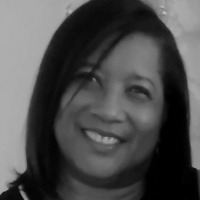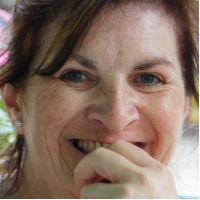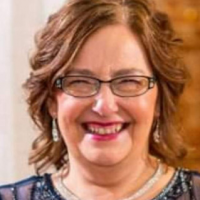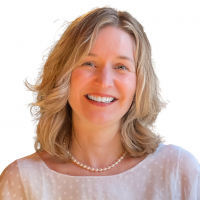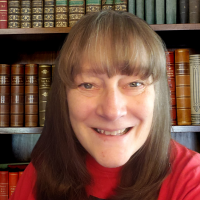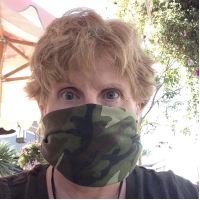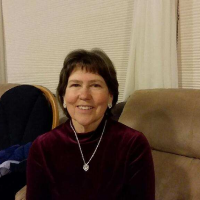!. Write what you love. Don't think you need to write something that doesn't interest you to be successful
2. If you have writer's block, step back for a day.
3. Don't compare yourself to anyone else. Progress, not perfection.
4. If at first you don't succeed, try, try, try again. Don't give up when your writing isn't getting noticed. Many successful people experienced the same thing.
5. If you truly love writing, then do it. For yourself, and the readers will follow. Just keep writing.
1. Writing is a journey. Enjoy your journey. Let people also follow to share and care which gives positive energy. Togetherness gives strength. It creates team spirit and generates power within.
2. Reading is a good habit. When you read a book you never feel loneliness. It inspires and empowers you to reach next level in reality. It keeps on going.
3. Writing a book is lifetime achievement. We should write atleast one book in a lifetime. Write your own story or experience in your journey of your life.
4. Writing is an art. We should inspire and empower others through our writing. It gives satisfaction.
5. Satisfaction plays key role. A satisfied person is better than a successful individual. Success is a journey not the destination. Successful people think differently act effectively.
1. Make a floor plan of each room. Draw the furniture positions and add the color scheme.
2. Make a table of your characters' names, hair colors, eye colors, and if they are right-handed or left-handed.
3. Engage the reader by allowing your characters to use their five senses.
4. Instead of using dialog tags, let the character move.
5. Show the character's emotions through their actions.
1. Have fun with your writing. Don't stress over it.
2. Be mindful of the genre and where the story takes place.
3. Outline if you need to, but most of the time, a story will take you where it wants you to go.
4. Use beta readers to give you honest feedback on the story once written.
5. Use professional editors, publishers, etc., for your best publishing outcomes.
1. Remember, it takes one word at a time to create a sentence, one sentence after another to create a paragraph, one paragraph after another to create a story. Step by step, you will get there.
2. You have a story idea, but whose story is it to tell? This will give you your main character.
3. Write down the three C's. Character (main), Conflict (or crisis) and Conclusion.
4. Do not worry about word count or genre, just get your story down.
5. If stuck with a plot/character issue, ask yourself, What if? This helps you to think outside the box.
Happy writing!
1. Read Paragraph and Dialogue (Out Loud.)
2. Show/Don't Tell + Avoid the use of "LY" to avoid telling the reader. Be descriptive(Show!)
3. Research Everything- ie; Dictionary/Synonyms
4. Ask yourself: What is going on in the scene?
5. Respect your Genre/Readers and Write Accordingly.
1. Start With a Clear Goal
2. Structure Well
3. Write First, Edit Later
4. Read Dialogue Out Loud
5. Know Your Audience & Genre
1. The first sparks of an idea can feel like play. Embrace it! Go for long walks daydreaming about your burgeoning story. Sketch and doodle the characters you're imagining. Make maps of the worlds coming to life in your mind. Write snippets of scenes that come to you even if you don't know where they belong in your eventual draft (and even if you're the planning type!).
2. Write the "back of the book" to get yourself excited about your story and to get to the heart of what you'll be writing - even if you don't know the ending yet (they don't include the ending there anyway!). Write it just for yourself.
3. Rest your draft before you revise, and build in rest periods between revision sweeps. Come back to your work with fresh eyes and a fresh mind.
4. When you begin your revisions, read through your manuscript once through without making any changes at all. If anything, highlight phrases and sections that are already singing. Begin the revision process from a position of strength and possibility.
5. When you're ready to zone in on details (like sentence structure, word choice, the tone of certain scenes), read your manuscript out loud. Let your ears help you to tweak what your eyes somehow cease to see...
My new book "The One Week Writing Workshop: 7 Days to Spark, Boost or Revive Your Novel" is actually all about tips and strategies just like this for anyone wanting to learn how to write a novel. Please check it out by going to my author profile.
Thanks, and happy writing! - Karin Adams
-Do not censor yourself. Go overboard with your characters to bring them to life.
-Stay true to writing what you love.
-Read widely, both within your genre and outside it. You'll pick up keen insights from other writers.
-Writing is art, publishing is business. You need to learn both.
-There is no substitute for disciplining yourself to write daily.
1) Write what you love. Worry about finding a genre later.
2) The housework can wait, delegate if necessary. Be sure to walk the dog, though.
3) Do your research and build your characters so they're believable.
4) Don't be afraid to sound ideas off people you know will tell you they like or don't like something. Take criticisms constructively.
5) Don't read your reviews. Even if they're good, don't read them.
1. Have a writing place, go there at....
2. The writing time and write. Thank the inner 'judge' and tell them you will seek their counsel some other time. Review what you wrote the next writing time.
3. Get a writing buddy, if you can, to connect with once a week to share progress and comment.
4. Identify your own style and process, winging it or all planned out or somewhere in between, and just trust what works for you.
5. Revise, revise, revise, and delete those words like 'actually' and any verb ending in 'ing'
1. If you're writing in your manuscript and something isn't working right, but you are not able to put a finger on what the problem is, don't be afraid to put it away for a few days. It could be you have information that is out of place and belongs in a place later (or earlier) in the story, or the problem could be having something to do with your main character's character arc. It could be something else, too. Walking away from it temporarily will allow your brain to relax and regroup. The answer will come to you.
2. Don't write like someone else. Write how you write. Your process is yours. Doing what works for you will make the road less bumpy and more fun.
3. Writing, whether you are writing fiction or nonfiction, is more than the act of writing itself. It is a process and it all takes time. Rushing through from the beginning to the end will only get you no where fast. Take your time and have fun with it.
4. After you write your first chapter, move on to the second and third and so on. Don't try to make everything perfect straight out of the gate, or you will be there forever at the beginning and never finish.
5. Talk to other people. Preferably, choose one or two people you can trust to talk to when you have an idea or hit a snag and don't quite know how to proceed. For me it's my son and daughter who I talk to. Sometimes verbalizing the issue(s) can clear the problem up.
1. Trust your own process. There are loads of writing how-to books out there with conflicting information. Read some of them. You will find that many have the same advice but worded just differently enough to allow them to label the advice as "their method." None of them are the be-all, tell-all, how-to bible. But they all have useful suggestions to help you hone your craft and help you define the method that works for you.
2. Commit to the writing. Whether your goal is an hour of writing a day, or a page count or a dedicated day on the weekend, strive to reach that goal.
3. That having been said, don't be afraid of failing. If you can't make a goal for whatever reason, don't beat yourself up over it. Taking wellness breaks is okay and encouraged.
4. Find people to read -- and to criticize your working drafts. Friends, family, professionals. Criticism before publishing is necessary. Your beta readers might just find a plot hole or two that really needs to be addressed. They might also disagree with each other regarding what they like and what they don't like. That's okay! And it's also okay to take their criticism with a grain of salt. You don't have to change anything based on beta reader criticism, but keep an open mind and always thank them for their input.
5. One "rule" about writing and success that I will always agree with, as told by screenwriter William Goldman (The Princess Bride, Butch Cassidy and the Sundance Kid, among others...)--Nobody knows anything! The best you can hope for is an educated guess.
1.Read widely in your genre and make notes about the style of conversation.
2.Study books in your genre to see how scenes are constructed.
3.Begin writing after you have picked out your main characters and know something about where the plot is going.
4. Read your book aloud. This helps you catch awkward phrasing and grammar mistakes.
5. Have someone else (professional editor) read your book before you publish.



